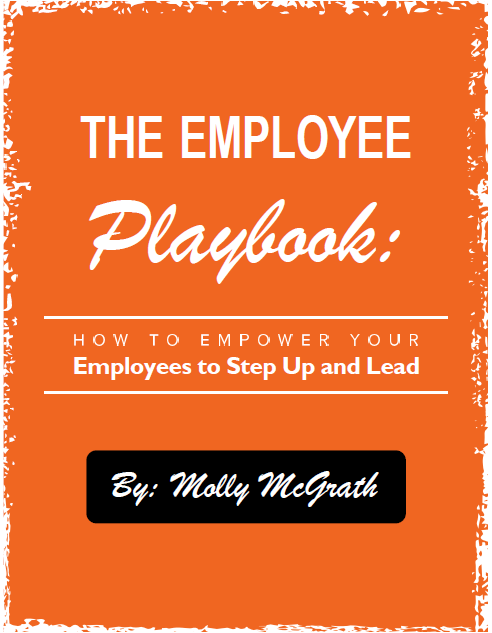 It’s so easy to throw your hands up after you’ve tried multiple times – and failed – to get your attorney to give timely responses, review documents promptly and stop procrastinating. After ideas, plans, tears and come-to-Jesus talks, it’s easy to resort to “it is what it is” and continue on the path of constant frustration and disappointment.
It’s so easy to throw your hands up after you’ve tried multiple times – and failed – to get your attorney to give timely responses, review documents promptly and stop procrastinating. After ideas, plans, tears and come-to-Jesus talks, it’s easy to resort to “it is what it is” and continue on the path of constant frustration and disappointment.
There are many reasons WHY this might be happening, but before you can get long-lasting change in this area, you must first check your own approach to the matter. It’s not that you are necessarily wrong – procrastinating does cause all kinds of consequences and chaos. But having your boss promise to stop based on your pleas, anger, tears or frustrations will only be effective for a short while. Then old habits will creep in and you will be more aggravated than ever.
To really dive into an approach that will have long-lasting change, it’s helpful to first remove yourself from, and safeguard yourself against, any entitlement that may have crept into your mindset. Entitlement, by definition, is “the belief that one is deserving of or entitled to certain privileges.”
Our definition is, “When the things you used to appreciate about your job become the things you begin to expect; when privileges no longer seem like privileges, but expectations; and when you have lost any sense of appreciation and gratitude. When you don’t see that the opportunity to grow is an opportunity someone has given you, for which you must work hard to attain and maintain.” (“Don’t Be a Yes Chick” excerpt)
So what does this have to do with procrastinating? What if you approached solving the problem of your boss procrastinating as a skill you can learn (problem solving), and an opportunity for growth – which, by the way, makes you an incredibly valuable team member!
First, you may not have any entitlement around your frustration. But it’s always a great idea to use the Entitlement Checklist below to test yourself, and if you don’t have entitlement issues, to re-center your thinking before they creep in. In addition to helping you get out of entitlement mentality thinking, the checklist also helps you organize your thoughts about the situation and improves your communication.
However, sometimes entitlement mentality does creep in around your frustration that your attorney is procrastinating. It’s a tricky area because it does cause a lot of stress and bad client service at times. This is why it is so important (and sometimes difficult) to separate being right about something from feeling entitled about it. Because you ARE right, but that isn’t going to get you very far in solving the problem. At best, you will express your feelings and your boss will feel bad and promise to change. You may even discuss strategies for how to end the procrastinating, but they will all come from a place of foundation. And typically, the change will only last a month or so and you will be frustrated again and disappointed.
Top Five “Entitlement Creepers”:
- You feel you have the right to a boss who understands how to fix the problem. Well, that’s why he needs you! If your boss knew how to NOT get things done at the last minute and how to not procrastinate until things built up and became emergencies, he wouldn’t do those things. You may have slipped into the entitlement mentality if you feel you are entitled to work in a place where your boss knows how to fix problems and/or should just do what you say to get problems resolved. But instead of approaching this issue like he “should” do this or that to not procrastinate, try approaching it saying, “Well, this and that haven’t worked, so what can we try that might work better?” If your idea or system depends solely on the boss working in a way that is against their natural work tendencies, it isn’t going to last for long. The idea or system has to work WITH your boss’ habits, not against them, or at least have someone helping to hold him accountable. So, for example, we often see the support team come up with systems that include email reminders to the boss or special inboxes for things that need to be reviewed and responded to – and all of those are great ideas, IF you have considered your boss’ world and know these will fit into it. If your boss is in client meetings from 8 a.m. to 5 p.m., when does he have time to look at his email to see the reminder or check the special inbox? Getting out of the entitlement mentality will help you approach the situation with more of a “how can we make this work and solve the problem” mindset. Again, being right doesn’t get the problem fixed. I don’t know about you, but I would rather skip the being right part and just get things working effectively!
- The problem becomes “him versus me” – and then no one wins. In the area of procrastination, if entitlement has crept in so you are having that running mental dialogue of “I shouldn’t have to babysit him” or “His procrastinating is now making my job chaotic and stressful” and the like, it often results in a “me versus him” attitude. The more you point out how wrong your boss is or the negative effect the situation is having on you, the more he may push back. So when you say “I’m overworked and working late to get this stuff done because you wait until the last minute,” he might respond, “I work late every night too” and so on. It becomes a back and forth of who is more wronged or more affected, and that doesn’t solve the problem. Can you point out the effect of his procrastinating on you? Sure. But that can’t be your only approach because it won’t cause long-lasting change.
- Your time is more important than his time. IF entitlement is slipping in, you will start to see the things you do as much more important than what your boss does, or see yourself as much more hard-working than he is. Are you right? Maybe. I don’t know – I don’t work with you! BUT be careful that entitlement isn’t coloring your view and, because you are frustrated and stressed, causing you to inaccurately assess the situation. You might be viewing it from only your perspective. For example, I’ve often talked with team members who are upset that their boss doesn’t come in until 9:30 when they have to get there at 8. They feel they work harder than their boss. But they weren’t looking at the whole picture. They were looking at it from their frustrated perspective that they needed more time from the boss and he wasn’t there until a full hour and a half after they were. But he also stayed late to teach workshops once a week and two weekends a month. So, yes, he generally came in at 9:30 to allow himself time with his family that he lost doing workshops that brought in clients. Overall, be careful when you count hours with your boss or a co-worker. What they bring to the table may be incredibly valuable, but that doesn’t mean it requires hours equal to yours. That is a huge sign of entitlement mentality. You aren’t entitled to work somewhere where your boss works equal hours as you. Your boss has a lot of stress you don’t have – like making payroll, being personally liable for any mistakes the firm makes, etc. If someone screws up and he loses his license to practice law, he can’t go get another job as a lawyer – but you can go get another job as a team member. So, hour for hour isn’t an equal comparison of stress and commitment. Focus on solving the problem for everyone, not comparing time.
- Only your boss has annoying habits. Do you really think there is nothing you do that drives him bonkers? Of course there is! So, just like you may not listen and do exactly as he says in every situation, because you feel your way is better, he may feel the same. You might be in entitlement mentality mode if you feel that you are the only one on the receiving end of a frustrating habit. Just like you would want your boss to approach you with a problem-solving mindset instead of a right/wrong one, approach them the same way. (If you just said in your head, “Well, he DOES approach me in a right/wrong approach,” you are in entitlement mentality mode! You went straight to being right about the matter. Bosses don’t keep employees to tell them what’s wrong. They keep employees who help them solve problems.)
- The techniques you’ve already tried or suggested should have worked. Again, nothing about this solves a problem. It’s giving up and thinking, “Oh well, I tried” so now it’s the boss’ problem to fix, not yours. That means you are willing to continue dealing with the problem – because it’s everyone’s problem until it’s resolved.
Don’t focus on who is more stressed, who has more to do, and who is right or wrong; focus on fixing the problem. And as a bonus, you have a lot less angst and anxiety about the problem when you aren’t blaming and “being right” about it. You are still stressed at the effect of the procrastination, but you can approach problem solving it in a much more clear-minded way.
Learning to solve problems and uncover why things are happening, without getting frustrated or entitled, is an incredibly valuable skill to learn and develop. Most team members can get work done. Very few can help the boss solve a problem he or she has been suffering with for years.
Need help getting the right members on your team? Talk with us about our SmartHire Solution™ Process.
by Laney Lyons-Richardson
Image courtesy of David Castillo Dominici at FreeDigitalPhotos.net

